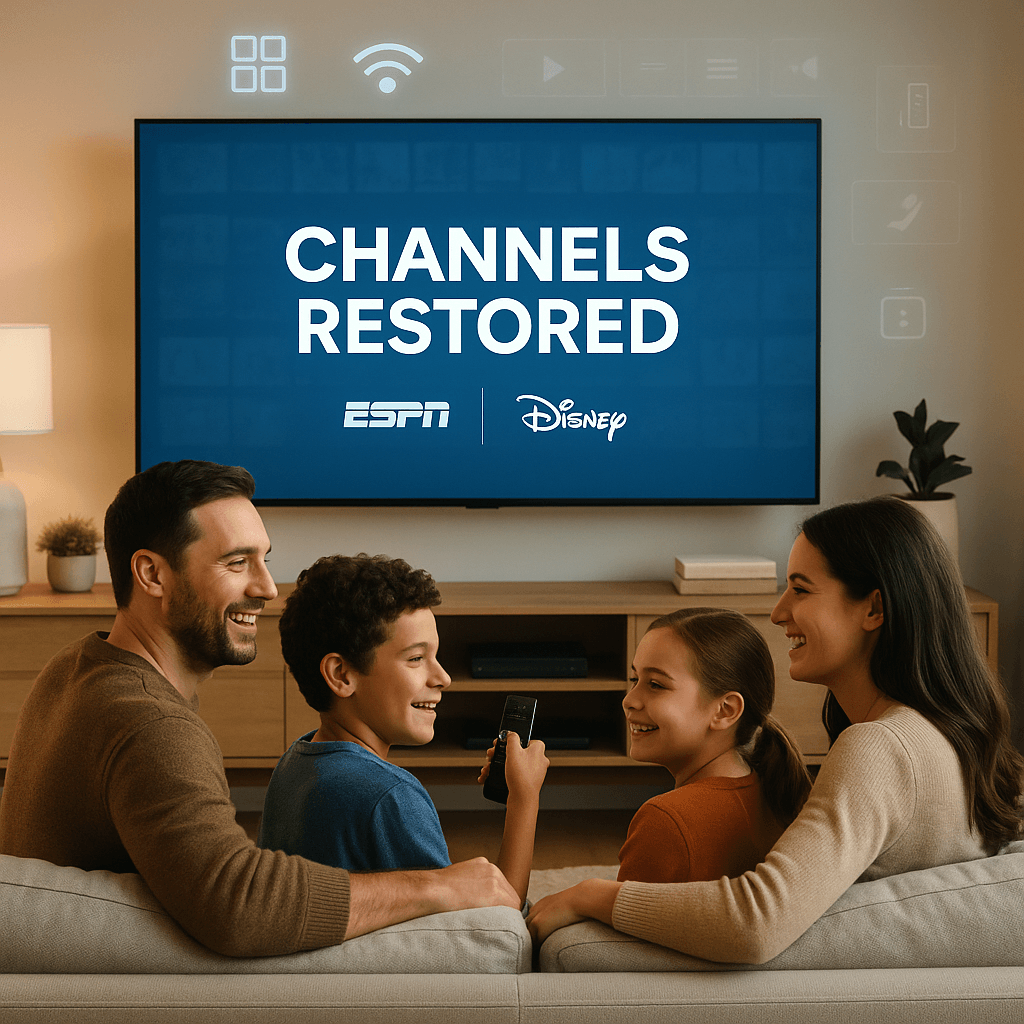Google and Disney just ended their brutal two-week standoff that left millions of YouTube TV subscribers without ESPN, ABC, and 20+ Disney-owned channels. The deal restores service just in time for college football weekend, ending a blackout that cost Google subscribers and Disney viewers during prime sports season.
Google and Disney just called off their messy carriage fight, bringing ESPN, ABC, and more than 20 Disney-owned channels back to YouTube TV after a two-week blackout that left millions of cord-cutters scrambling for alternatives.
The timing couldn't be more critical. College football fans missed key games, Monday Night Football went dark, and the standoff threatened to stretch into the crucial holiday sports season. "We're happy to share that we've reached an agreement with Disney that preserves the value of our service for our subscribers," YouTube said in a statement, with channels already returning to the platform.
The dispute boiled down to cold, hard cash. ESPN commands more than $10 per month per subscriber in carriage fees - the highest rate of any network in America, according to CNBC's previous reporting. That premium pricing reflects ESPN's stranglehold on live sports, but it also makes these negotiations increasingly toxic as streaming services fight to keep subscription costs manageable.
Disney's co-chairs Alan Bergman and Dana Walden, along with ESPN Chairman Jimmy Pitaro, struck a conciliatory tone in their joint statement, saying the agreement reflects "how audiences choose to watch entertainment." But internal memos reveal the company viewed this as a crucial test case for valuing premium content in the streaming era.
YouTube TV subscribers felt the pain immediately. The service offered $20 credits this week to compensate for the missing channels, which included not just ESPN and ABC but also FX, National Geographic, Disney Channel, and Freeform. The blackout hit just as college football season heated up and Monday Night Football games disappeared from the platform.
This marks the third major carriage dispute YouTube TV has navigated this year. In October, NBCUniversal content nearly vanished before a last-minute deal saved "Sunday Night Football" and other marquee programming. Earlier in August, Fox channels almost went dark right before college football season, forcing another emergency agreement.
The pattern reveals how traditional media companies are pushing back against streaming platforms that want to offer cheaper alternatives to cable TV. Each dispute tests whether premium content can command premium prices in the streaming world, or if convenience and cost will win out.












